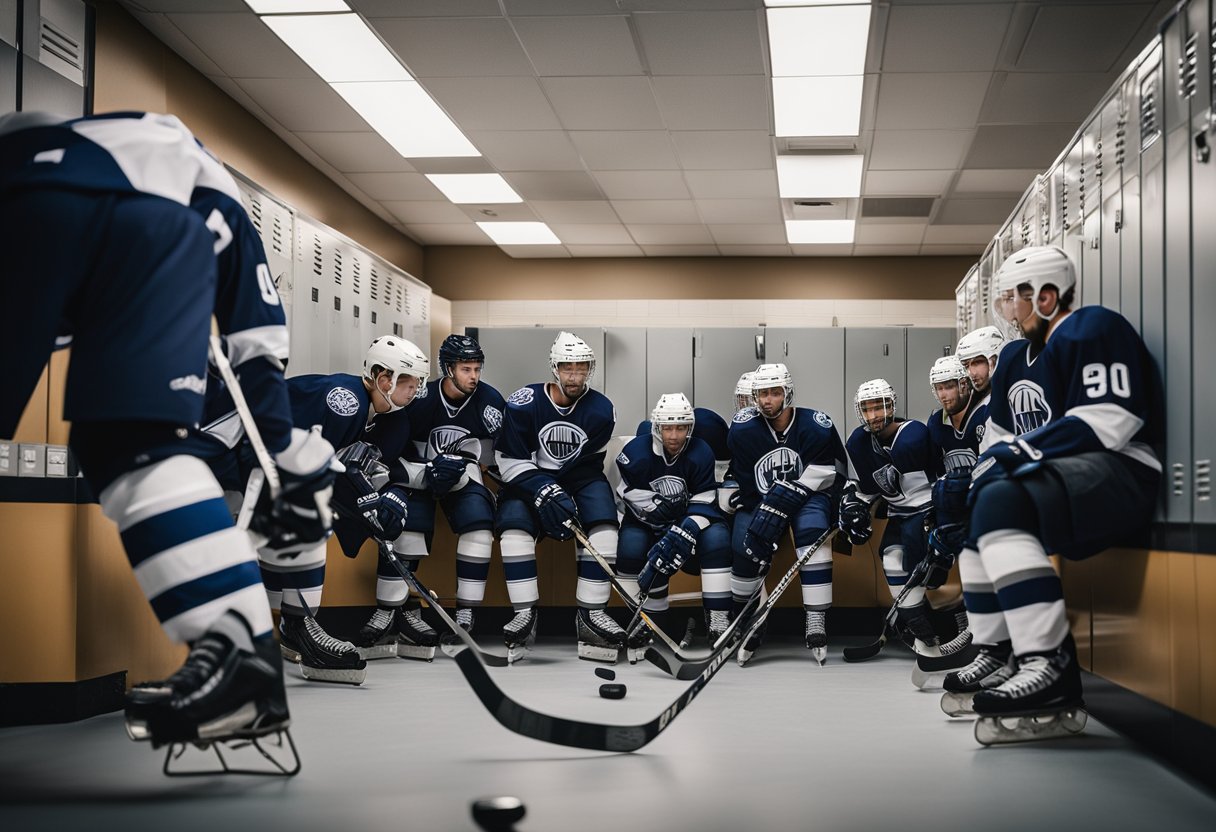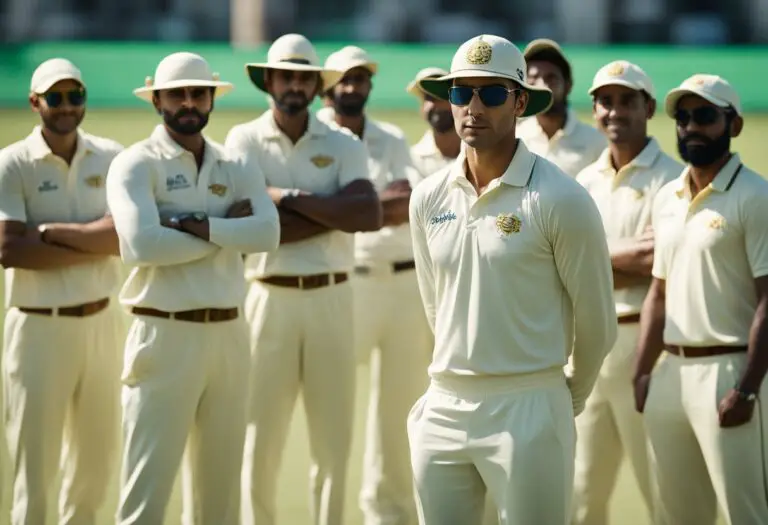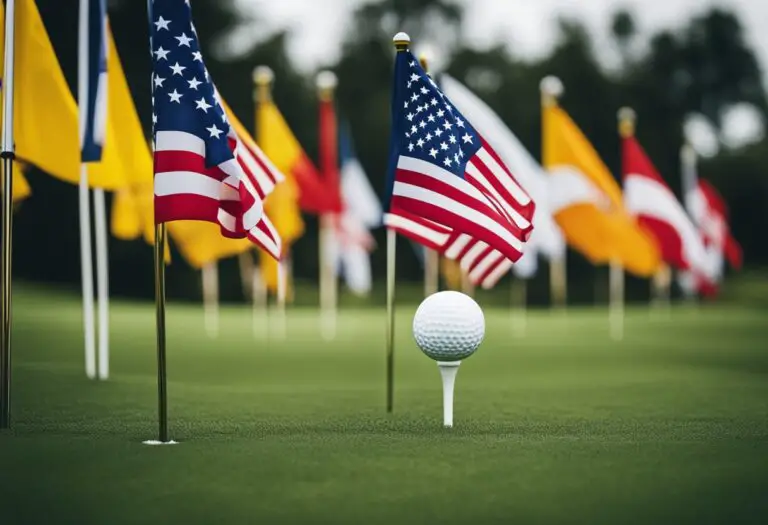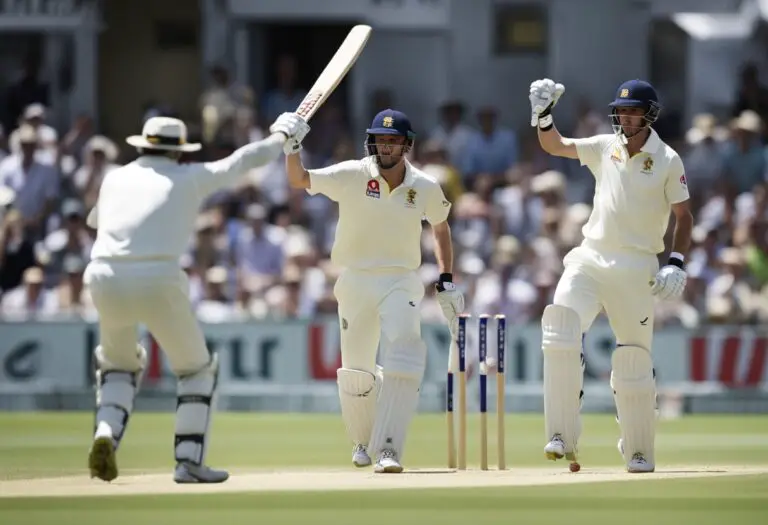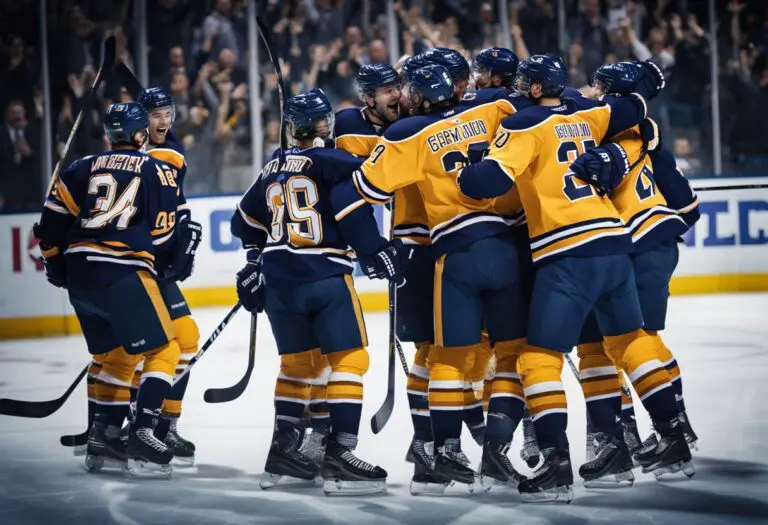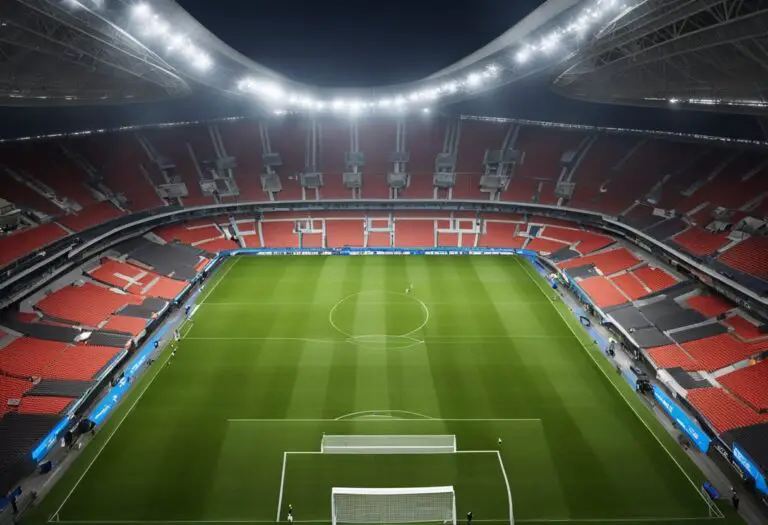What Are the Best Strategies for Winning a Hockey Championship
What Are the Best Strategies for Winning a Hockey Championship? Tips from the Pros
Winning a hockey championship is the ultimate goal for any team, but achieving it requires more than just skill and talent. It takes a combination of effective strategies, hard work, and dedication to come out on top. In this article, we will explore some of the best strategies that can help a team win a hockey championship.

One of the most important strategies for winning a hockey championship is having a strong team chemistry. When players trust and support each other, they are more likely to work together towards a common goal. This means that coaches need to prioritize team-building activities, encourage open communication, and ensure that everyone is on the same page.
Another key strategy is to focus on defense. While scoring goals is important, preventing the other team from scoring is just as crucial. This means that coaches need to train their players to be strong defenders, teach them how to anticipate their opponents’ moves, and emphasize the importance of positioning and teamwork. By prioritizing defense, a team can limit their opponents’ scoring opportunities and increase their chances of winning.
Building a Skilled Team

Recruiting Talented Players
To build a successful hockey team, it is essential to recruit talented players. The recruitment process should begin early, with scouts and coaches attending games and tournaments to identify potential players. It is also important to establish relationships with local hockey leagues and teams to gain access to a wider pool of talent.
When recruiting players, it is important to consider their skill level, work ethic, and attitude. A player with exceptional skill but a poor attitude can be detrimental to team chemistry and performance. Similarly, a hard-working player with limited skills may not be able to contribute to the team’s success in the long run.
Developing Player Skills
Once talented players have been recruited, it is important to develop their skills to maximize their potential. This can be achieved through a combination of on-ice training, off-ice conditioning, and video analysis.
On-ice training should focus on developing individual skills such as skating, passing, shooting, and checking, as well as team tactics such as power plays and penalty kills. Off-ice conditioning should include strength training, cardio, and flexibility exercises to improve overall fitness and reduce the risk of injury. Video analysis can be used to identify areas for improvement and to provide feedback to players.
Fostering Team Chemistry
Finally, to build a successful hockey team, it is essential to foster team chemistry. This can be achieved through team-building activities, open communication, and a positive team culture.
Team-building activities can include anything from group outings to team dinners to charity events. Open communication is essential to ensure that everyone is on the same page and working towards the same goals. A positive team culture can be fostered by encouraging players to support and motivate each other, and by promoting a sense of accountability for individual and team performance.
By recruiting talented players, developing their skills, and fostering team chemistry, a hockey team can increase their chances of winning a championship.
Strategic Game Planning

Analyzing Opponent Weaknesses
One of the most important aspects of strategic game planning is analyzing the weaknesses of the opponent. By doing so, a team can identify areas where they can exploit the opposition and gain an advantage. This can involve studying game tapes, analyzing statistics, and scouting reports. Coaches can then develop a game plan that capitalizes on these weaknesses and puts their team in the best possible position to win.
Adapting Strategies Mid-Game
Another key strategy for winning a hockey championship is the ability to adapt strategies mid-game. In hockey, momentum can shift quickly, and a team that fails to adjust to changing circumstances can quickly find themselves on the losing end of a game. A good coach will be able to read the flow of the game and make adjustments as necessary to keep their team in the game and increase their chances of winning.
Special Teams Mastery
Special teams play can often make the difference between winning and losing in hockey. Teams that are able to effectively kill penalties and capitalize on power-play opportunities are more likely to come out on top. Coaches must work with their players to develop effective special teams strategies and ensure that their players are well-prepared for these critical moments in the game.
Overall, strategic game planning is a crucial component of any successful hockey team. By analyzing opponent weaknesses, adapting strategies mid-game, and mastering special teams play, a team can put themselves in the best possible position to win a championship.
Physical and Mental Preparation

Implementing a Rigorous Training Regime
To win a hockey championship, physical preparation is crucial. Players must be in top physical condition to endure the long and grueling season. Implementing a rigorous training regime is a must. This includes a combination of strength training, cardio, and agility drills. It is important to work on both upper and lower body strength, as well as core stability.
Players should also focus on improving their speed, endurance, and agility. This can be achieved through various drills such as ladder drills, cone drills, and plyometrics. It is also important to practice on-ice skills such as skating, passing, and shooting.
Focus on Nutrition and Recovery
In addition to physical training, nutrition and recovery are also important factors in preparing for a championship. Players should focus on a balanced diet that includes lean protein, complex carbohydrates, and healthy fats. Hydration is also crucial, and players should aim to drink plenty of water throughout the day.
Recovery is just as important as training. Players should make sure to get adequate rest and sleep to allow their bodies to recover. Massage therapy, stretching, and foam rolling can also help to prevent injuries and aid in recovery.
Cultivating a Winning Mindset
Physical preparation is only part of the equation. Mental preparation is just as important in achieving success. Cultivating a winning mindset is crucial for any athlete. This includes setting goals, visualizing success, and staying focused on the task at hand.
Players should also work on developing mental toughness and resilience. This can be achieved through various techniques such as meditation, visualization, and positive self-talk. It is important to stay motivated and maintain a positive attitude even in the face of adversity.
By implementing a rigorous training regime, focusing on nutrition and recovery, and cultivating a winning mindset, players can increase their chances of winning a hockey championship.
In-Game Management

Effective Line Changes
One of the most crucial aspects of in-game management is making effective line changes. Coaches need to ensure that players are rested and ready to perform at their best. Quick and efficient line changes can help maintain the team’s momentum and prevent fatigue. Coaches should also consider the opposing team’s strategy and adjust their own accordingly.
Time-Out Utilization
Time-outs are a valuable tool for coaches to use during a game. They can be used to give players a break, adjust strategy, or simply to break the opposing team’s momentum. However, coaches need to use time-outs strategically and not waste them unnecessarily. It’s important to communicate clearly with players during time-outs and make sure they understand the adjustments being made.
Goalie Performance
A team’s goalie is often the most important player on the ice. In-game management for goalies involves making sure they are mentally and physically prepared for the game. Coaches should also consider the opposing team’s offensive strategy and adjust their own defensive strategy accordingly. It’s important for goalies to communicate with their defensemen and anticipate the opposing team’s next move.
Overall, effective in-game management requires quick decision-making, clear communication, and strategic adjustments. Coaches need to stay calm under pressure and make decisions that will benefit the team in the long run.
Post-Season Analysis

Reviewing Season Performance
Before diving into the post-season analysis, it is important to first review the overall season performance. This includes analyzing the team’s strengths and weaknesses, as well as identifying any areas for improvement. A thorough review of the regular season performance can help identify any patterns or trends that may have contributed to the team’s success or struggles.
Learning from Playoff Outcomes
The post-season analysis should also include a review of the team’s playoff outcomes. This includes analyzing each game and identifying any key factors that contributed to the team’s success or failure. It is important to learn from these outcomes and use them as a learning opportunity for future seasons.
Planning for Future Seasons
Based on the review of the regular season and playoff outcomes, the post-season analysis should also include planning for future seasons. This includes identifying any areas for improvement and developing a plan to address them. It may also involve identifying potential areas of growth and developing strategies to take advantage of them.
Overall, the post-season analysis is a critical component of any successful hockey team. By reviewing the season performance, learning from playoff outcomes, and planning for future seasons, teams can continue to improve and increase their chances of winning a championship.

